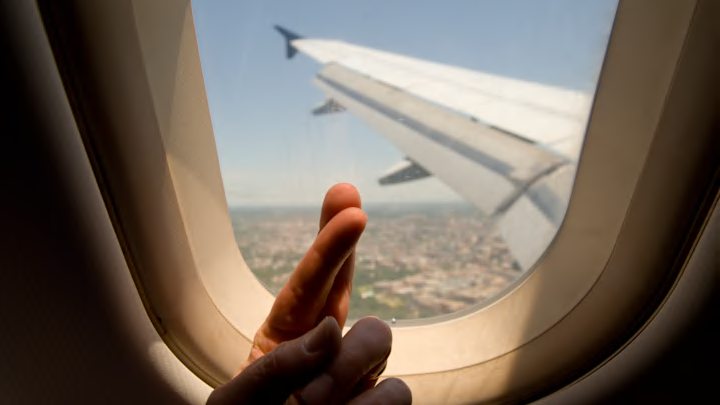In summer 2023, United Airlines spokesperson Linda Jojo revealed an interesting company trivia note. Buried in a Washington Post story about the airline adding Braille to its cabins to help those with no or low vision, Jojo mentioned that the carrier doesn’t have a row 13 on some of its aircraft, which would make a tactile counting of rows to find one’s seat challenging. (Hence the Braille.)
A cursory glance of United’s fleet confirms this. The Boeing 777-200, for example, skips rows 13 and 14 and several others. The Airbus A319 eliminates rows 12 to 14. Want a seat in row 13 of the Airbus A320? Forget it. There isn’t one.
Is United superstitious? Perhaps, but that’s not the only reason they—and other carriers—don’t host a 13th row on flights.
According to Travel + Leisure, a key motivation for airlines skipping over row numbers is to present uniformity in their accommodations. The Boeing 737 doesn’t have rows 4, 5, or 6 in order to provide more space for rows 1, 2, and 3—all in first class. Other rows are passed up to make booking and finding seats easier and to maintain an even, round final row number like 30 or 40. Row numbers can also be scrapped in exit rows.
All of this row-skipping makes it easy to pass over a perceived unlucky number like 13. In fact, other airlines like Lufthansa and Ryanair avoid the row number as well. Other airlines make an effort to distance themselves from other numbers that different cultures may find troubling. Routes to and from Italy and Brazil might skip row 17, since that number has adverse connotations. In China, 14 is frowned upon, and itineraries going to or from the county might also pass up that row.
Not all airlines indulge. Delta’s Airbus A220-100, for example, has a row 13.
Why is 13 Considered Unlucky?
You’ll find that several customer-facing businesses avoid the number 13. Some hotels, for example, skip a 13th floor. Some people dislike doing anything life-changing, like marrying, on the 13th—especially if it's a Friday. But why do people assign misfortune to the number?
Blame Loki. As Norse mythology dictates, the god of mischief once stormed a dinner party in Valhalla, bringing mayhem in his wake—and bringing the number of deities there to 13. It may also stem from the arrival of Last Supper attendee Judas Iscariot, who was the 13th reveler to appear.
Friday is also a day of the week that seemed to bring about further Biblical misadventure, including Cain’s murder of Abel and Adam and Eve sampling the forbidden fruit.
Other examples persist throughout history, including the number of steps to the gallows (13) and the number of witches in a coven (also 13).
Naturally, there’s no objective evidence that a plane having a row 13 will statistically increase the odds of something bad happening. But those who are superstitious may point out that the infamous 1972 crash in the Andes that led to necessary cannibalism among a group of rugby players and dramatized in the recent Netflix film Society of the Snow happened on a Friday the 13th.
Have you got a Big Question you’d like us to answer? If so, let us know by emailing us at bigquestions@mentalfloss.com.
